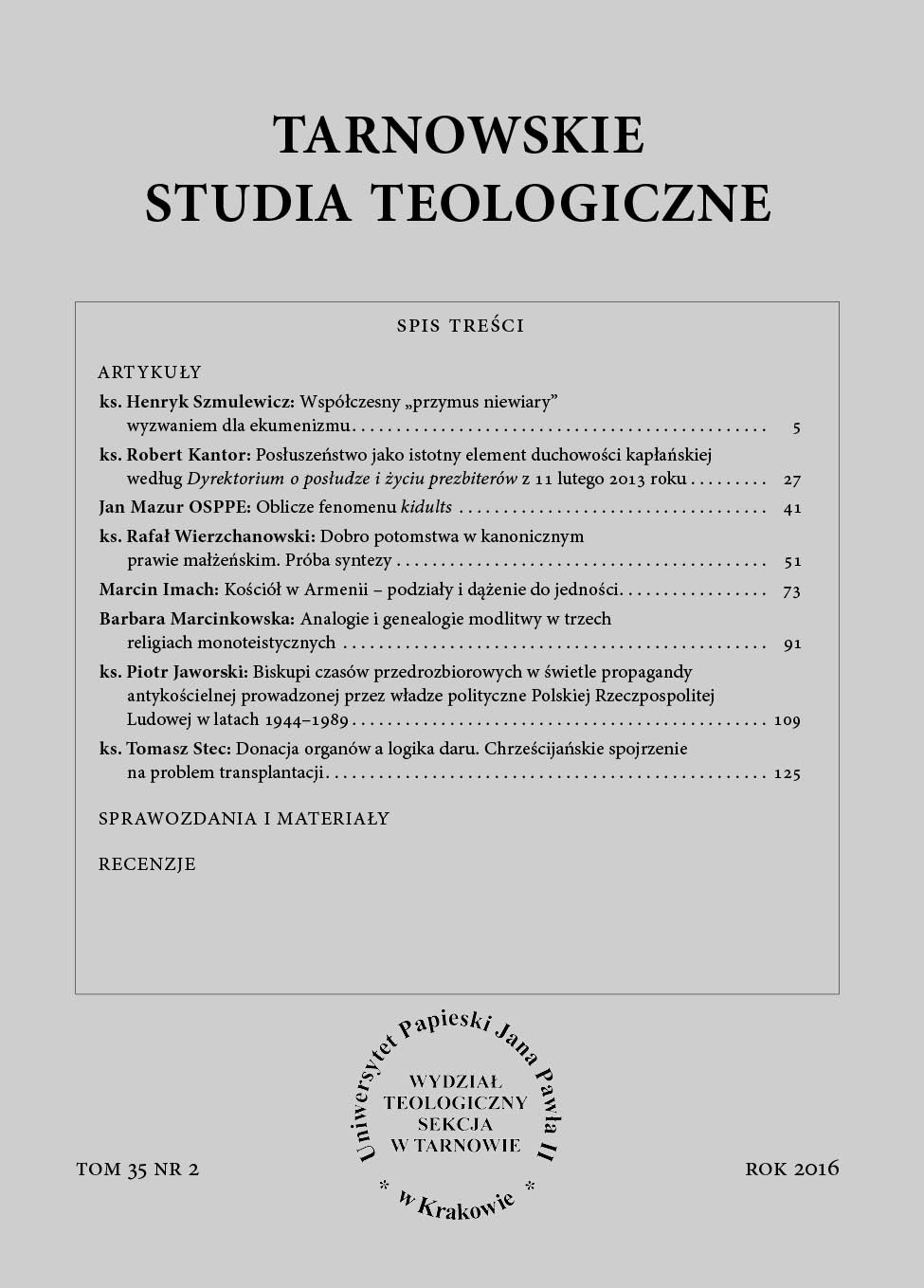The face of the phenomenon of kidults
DOI:
https://doi.org/10.15633/tst.2104Keywords:
kidults, adulthood, childishness, youth, mature personality, political lemming, hedonism, selfishnessAbstract
The kidults phenomenon was recognized relatively recently. It is a consequence of progressive civilization changes. The word kidults is a combination of two words: kid and adult. It was first used in “The New York Times” in 1985. Peter Martin applied it to describe people who take advantage of the experience of adulthood, while escaping from its hardships and responsibilities. They are in fact adults, but in many respects their views and attitudes contain elements of infantilization.The text consists of three parts, and the content is revealed in each title: 1. Who are kidults? 2. Kidults in the social sphere 3. Christianity and kidults. It may be noted that today there is a whole generation of kidults. Such people stubbornly associate life with childhood and adolescence. Unfortunately, this involves the weakening or even the disappearance of the ethic of work and responsibility, while a hedonistic ethic is espoused.
It seems that Christianity has the means to effectively overcome that which in the kidults phenomenon constitutes an existential threat, disputes mature adulthood, obscures awareness of human dignity, plunges a person into spiritual apathy and distorts the image and likeness of God in man. The most important measure is the active power of Christian love, expressed in interpersonal relationships.
References
Barrie J. M., Piotruś Pan i Wendy, tłum. M. Rusinek, Kraków 2014.
Bojar A., Mistrzak M., Maminsynek polski, „Wprost” 2010 nr 43, s. 60–61.
Brooks K., Nothing sells like teen spirit: the commodification of youth culture, w: Youth cultures: texts, images, and identities, eds. K. Mallan, S. Pearce, Westport 2003, s. 1–16.
Cataluccio F. M., Niedojrzałość. Choroba naszych czasów, tłum. S. Kasprzysiak, Kraków 2006.
Gębicka-Andrian M., Dzieci Piotrusia Pana, „Wprost” 2006 nr 22, s. 68–70.
Janicki M., Władyka W., Strategia leminga, http://www.polityka.pl/tygodnikpolityka/kraj/1528687,1,kim-jest-polityczny-leming.read (8.05.2015).
Kidults w średnim wieku, „Rzeczpospolita” z 7.11.2007, http://www.rp.pl/artykul/67388.html (8.05.2015).
Kozłowska P., Dorosłe dzieci, „Przekrój” 2006 nr 14, s. 56–58.
Mazur J. OSPPE, „Kidults” as a phenomenon of postmodernity, „Moлoдь i pинок” (Дрогобич) 2015 nr 7 (126), s. 143–146.
Noxon Ch., Rejuvenile: Kickball, Cartoons, Cupcakes, and the Reinvention of the American Grown-up, 2006 (online book preview).
Seligman M. E. P., Walker E. F., Rosenhan D. L., Psychopatologia, tłum. J. Gilewicz, A. Wojciechowski, Poznań 2003.
Semka P., Kidulci z Platformy, „Wprost” 2008 nr 8, s. 26–27.
Stare dzieci: młodzi Polacy nie chcą się usamodzielniać, https://www.google.pl/?gws_rd=ssl#q=Pokolenie+bamboccioni (8.05.2015).
Śliwiński P. J. o., Zdziecinnienie – przekleństwo, marzenie czy metoda?, w: Dzieckiem podszyte. Rzecz o dzieciństwie, red. A. Regiewicz, Zabrze 2000, s. 53–58.
Walulik A., Dorosłość kształtowana przez dzieciństwo, w: (Bez)radność wychowania…?, red. Z. Marek i M. Madej-Babula, Kraków 2007, s. 79–91.
Zwoliński A. ks., Kidults – dorosłe dzieci, http://www.katolik.pl/24557,416.druk?s=1 (8.05.2015).
Zwoliński A. ks., Tato, gdzie jesteś?, Kraków 2015.
Downloads
Published
Issue
Section
License
Copyright (c) 2017 Jan Mazur

This work is licensed under a Creative Commons Attribution 4.0 International License.
Twórca oświadcza, że służą mu prawa autorskie do utworu i że nie są ograniczone w zakresie objętym niniejszym oświadczeniem oraz że utwór jest dziełem oryginalnym i nie narusza praw autorskich innych osób.
Twórca zezwala Uniwersytetowi Papieskiemu Jana Pawła II w Krakowie na nieodpłatne, niewyłączne i nieograniczone w czasie korzystanie z utworu, to jest:
- utrwalanie i zwielokrotnianie: wytwarzanie egzemplarzy utworu techniką drukarską, reprograficzną, zapisu magnetycznego oraz techniką cyfrową;
- obrotu oryginałem albo egzemplarzami, na których utwór utrwalono (wprowadzanie do obrotu, użyczenie lub najem oryginału albo egzemplarzy, publiczne wystawienie, wyświetlenie, a także publiczne udostępnianie utworu w taki sposób, aby każdy mógł mieć do niego dostęp w miejscu i w czasie przez siebie wybranym);
- włączenie utworu w skład utworu zbiorowego;
- udzielanie przez Uniwersytet Papieski Jana Pawła II w Krakowie sublicencji Creative Commons Uznanie autorstwa 4.0 Międzynarodowe (CC BY 4.0).
Uniwersytet Papieski Jana Pawła II w Krakowie udostępnia utwór na Platformie Czasopism należącej do uczelni, na licencji Creative Commons Uznanie autorstwa 4.0 Międzynarodowe (CC BY 4.0) Tym samym uprawnia wszystkich zainteresowanych do korzystania z utworu pod następującymi warunkami:
- zostanie podany autor i tytuł utworu,
- zostanie podane miejsce publikacji (tytuł czasopisma i adres internetowy do oryginalnie opublikowanego utworu).

